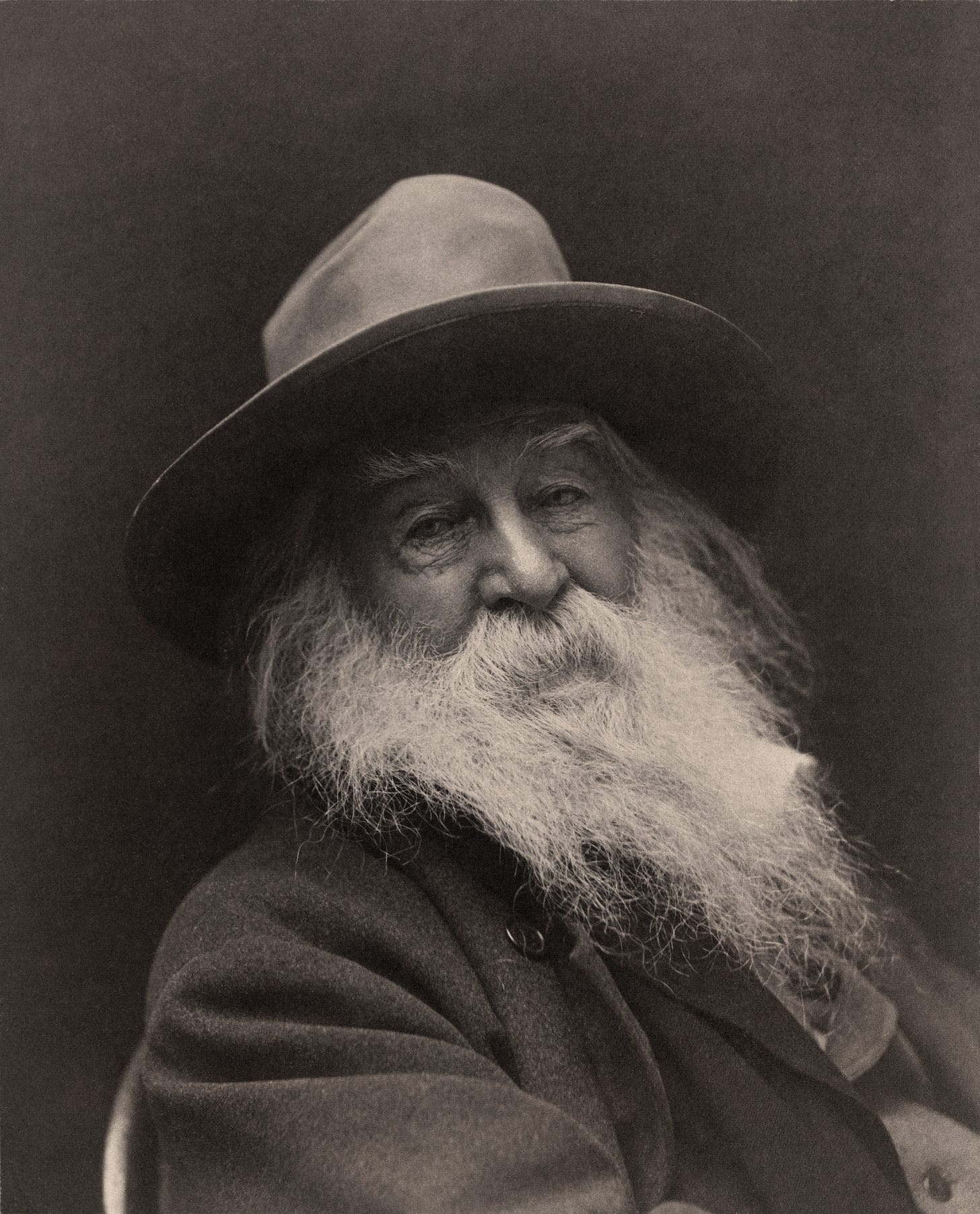Walt Whitman, mystic poet
Divine am I – inside and out.
— Walt Whitman
Walt Whitman, one of America’s most celebrated poets, wove mysticism into the fabric of his work, particularly in his seminal collection Leaves of Grass. His mysticism wasn’t rooted in traditional religious doctrine but rather in a profound, intuitive sense of unity with the cosmos. Whitman saw the divine not as a distant entity but as an omnipresent force permeating all life—himself, nature, and humanity included. This pantheistic vision is evident in poems like “Song of Myself,” where he declares, “I hear and behold God in every object, yet understand God not in the least.” For Whitman, the mystical experience was less about transcending the world and more about immersing himself in its sensory and spiritual richness, finding the infinite within the finite.
Whitman’s mystical beliefs also emphasized the interconnectedness of all beings, a concept that resonated with the transcendentalist currents of his time. He viewed the self as expansive, capable of encompassing others—friends, strangers, even the suffering and the marginalized—in a kind of cosmic empathy. This is strikingly clear when he writes, “I am large, I contain multitudes,” suggesting a soul unbound by individuality, merging with the collective human experience. His mysticism was democratic, rejecting hierarchical spirituality for a belief that every person, every blade of grass, held equal sacredness. This radical inclusivity blurred the lines between the material and the spiritual, casting the body and the earth as holy as any ethereal realm.
Yet, Whitman’s mysticism wasn’t abstract or detached; it was visceral, grounded in the physical world he so passionately celebrated. He found the divine in the body’s pleasures, the laborer’s sweat, the hum of cities, and the vastness of the American landscape. Unlike mystics who sought to escape earthly existence, Whitman embraced it, seeing the act of living as a mystical journey itself. His poetry often oscillates between awe and intimacy, as if he’s simultaneously marveling at the universe’s grandeur and whispering to it as a lover. This blend of reverence and immediacy made his mystical outlook uniquely accessible, inviting readers to see the extraordinary within the ordinary and to partake in the boundless wonder he perceived all around him.




